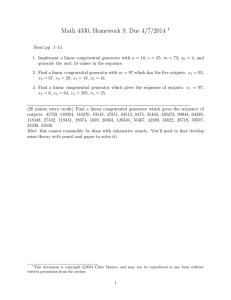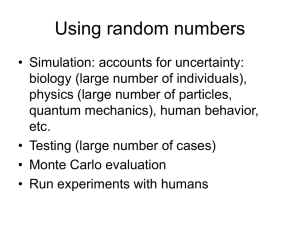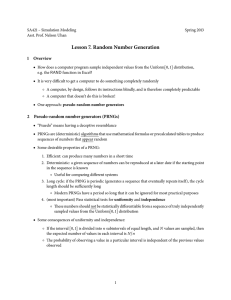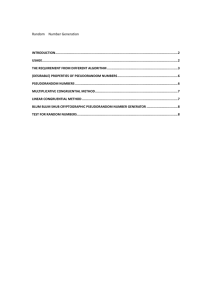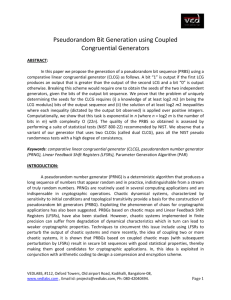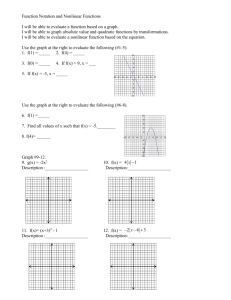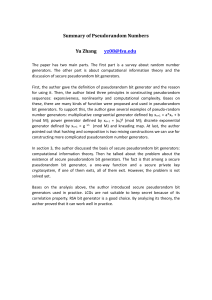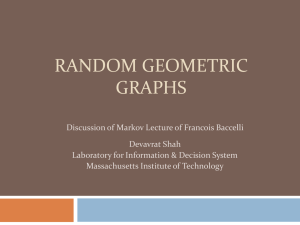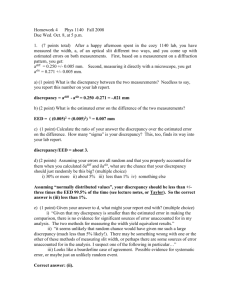Summary11
advertisement
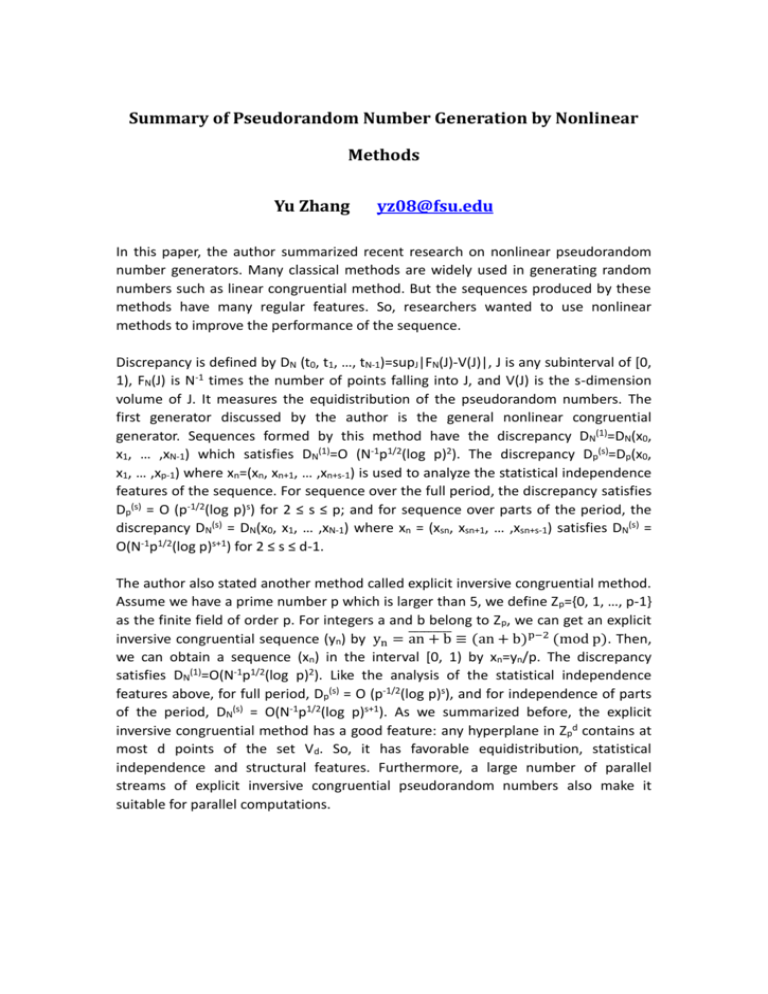
Summary of Pseudorandom Number Generation by Nonlinear
Methods
Yu Zhang
yz08@fsu.edu
In this paper, the author summarized recent research on nonlinear pseudorandom
number generators. Many classical methods are widely used in generating random
numbers such as linear congruential method. But the sequences produced by these
methods have many regular features. So, researchers wanted to use nonlinear
methods to improve the performance of the sequence.
Discrepancy is defined by DN (t0, t1, …, tN-1)=supJ|FN(J)-V(J)|, J is any subinterval of [0,
1), FN(J) is N-1 times the number of points falling into J, and V(J) is the s-dimension
volume of J. It measures the equidistribution of the pseudorandom numbers. The
first generator discussed by the author is the general nonlinear congruential
generator. Sequences formed by this method have the discrepancy DN(1)=DN(x0,
x1, … ,xN-1) which satisfies DN(1)=O (N-1p1/2(log p)2). The discrepancy Dp(s)=Dp(x0,
x1, … ,xp-1) where xn=(xn, xn+1, … ,xn+s-1) is used to analyze the statistical independence
features of the sequence. For sequence over the full period, the discrepancy satisfies
Dp(s) = O (p-1/2(log p)s) for 2 ≤ s ≤ p; and for sequence over parts of the period, the
discrepancy DN(s) = DN(x0, x1, … ,xN-1) where xn = (xsn, xsn+1, … ,xsn+s-1) satisfies DN(s) =
O(N-1p1/2(log p)s+1) for 2 ≤ s ≤ d-1.
The author also stated another method called explicit inversive congruential method.
Assume we have a prime number p which is larger than 5, we define Z p={0, 1, …, p-1}
as the finite field of order p. For integers a and b belong to Z p, we can get an explicit
inversive congruential sequence (yn) by yn = ̅̅̅̅̅̅̅̅̅
an + b ≡ (an + b)p−2 (mod p). Then,
we can obtain a sequence (xn) in the interval [0, 1) by xn=yn/p. The discrepancy
satisfies DN(1)=O(N-1p1/2(log p)2). Like the analysis of the statistical independence
features above, for full period, Dp(s) = O (p-1/2(log p)s), and for independence of parts
of the period, DN(s) = O(N-1p1/2(log p)s+1). As we summarized before, the explicit
inversive congruential method has a good feature: any hyperplane in Zpd contains at
most d points of the set Vd. So, it has favorable equidistribution, statistical
independence and structural features. Furthermore, a large number of parallel
streams of explicit inversive congruential pseudorandom numbers also make it
suitable for parallel computations.
